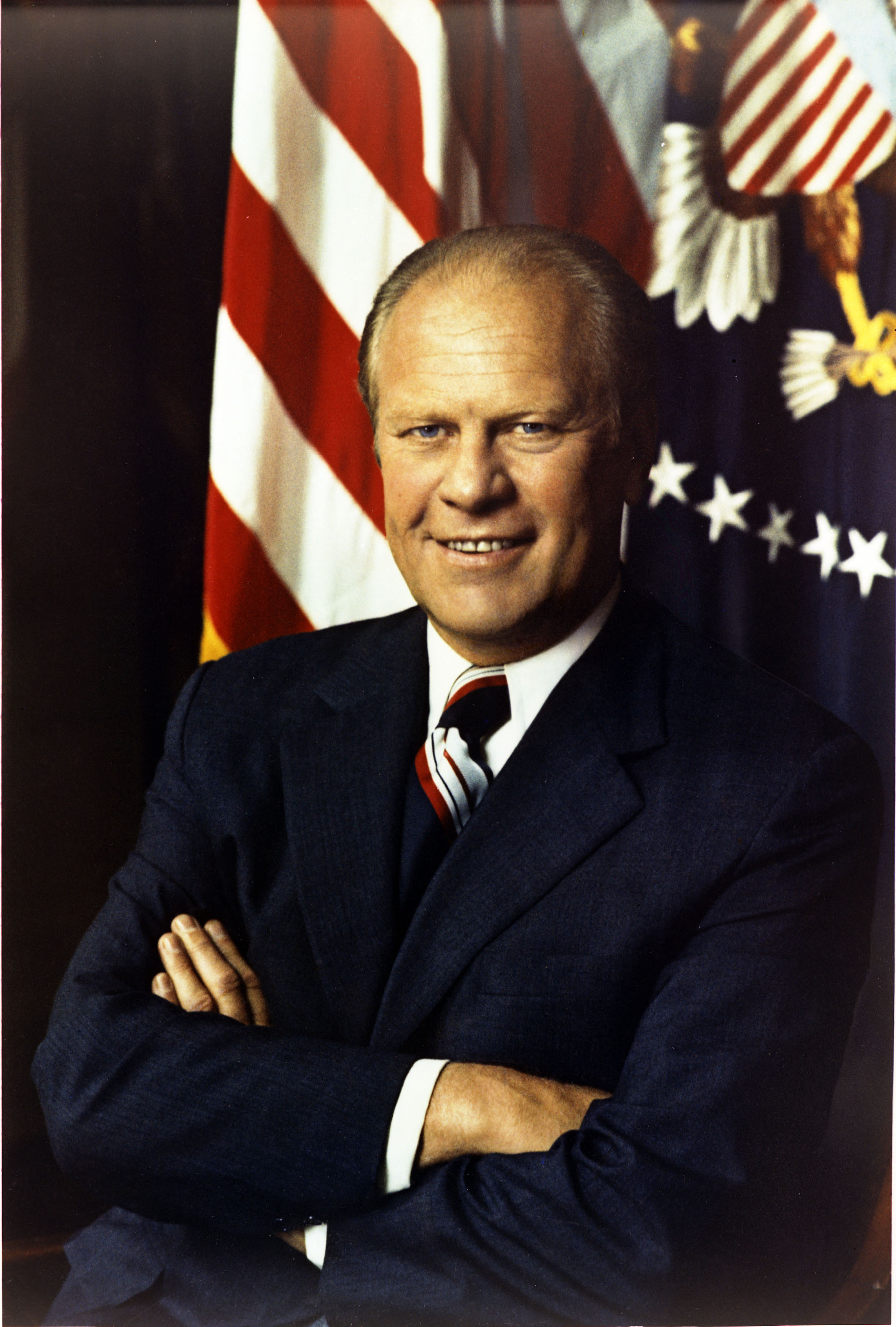
WASHINGTON (BP)–Gerald R. Ford, whose legacy as the 38th president of the United States was in helping to bring healing in the wake of the Watergate crisis, died Dec. 26.
Ford, 93, lived longer than any U.S. president. Ford’s widow, Betty, announced his death in a brief, written statement from their Rancho Mirage, Calif., home in which she said her husband’s “life was filled with love of God, his family and his country.”
Ford was best known for his attempt to restore confidence in government and the presidency when he ascended from vice president after the 1974 resignation of President Richard Nixon under the threat of impeachment. A month later, Ford pardoned Nixon, a move that produced an onslaught of criticism and may have cost him the 1976 election in a narrow loss to Democrat Jimmy Carter.
President Bush described Ford as “a great man who devoted the best years of his life in serving the United States.”
“He assumed power in a period of great division and turmoil,” Bush said. “For a nation that needed healing and for an office that needed a calm and steady hand, Gerald Ford came along when we needed him most.”
Richard Land, president of the Southern Baptist Ethics & Religious Liberty Commission, called Ford “a fundamentally decent man who loved his country and served it well in a time of great moral crisis.”
“While he was president for less than a thousand days and his record in office will never place him in the upper echelons of presidential greatness, President Ford’s honesty and integrity were vital to the nation as it recuperated from the Nixon scandals and the Vietnam War,” Land told Baptist Press. “His presidency reminds us that basic decency is important in a president and cannot be taken for granted.”
In 1976, Ford became the first sitting U.S. president to speak to the Southern Baptist Convention, addressing messengers in Norfolk, Va., less than a month before the nation’s 200th birthday. Carter, his opponent in that year’s campaign, was a Southern Baptist at the time.
Ford was Episcopalian. He was a member of Immanuel Church-on-the-Hill in Alexandria, Va., during his service in Congress and the White House, according to “God and the Oval Office,” a 2005 book by John McCollister. As president, he attended St. John’s Episcopal Church, which is across Lafayette Park from the White House.
Ford and four other men joined together to pray for 15 minutes each Wednesday in the prayer room of the Capitol in the eight months he was vice president and even after he became president, according to McCollister’s book.
Ford often was perceived as favoring abortion rights, especially in his latter years, but he expressed his opposition to “abortion on demand” during the 1976 campaign. He told a Roman Catholic archbishop that fall he had “consistently opposed” the 1973 Roe v. Wade decision legalizing abortion and believed the states should regulate the practice.
Ford served in the House of Representatives from Michigan for nearly 25 years, including eight years as the minority leader. Nixon named him vice president in December 1973 to replace Spiro Agnew, who had resigned after pleading no contest to income tax evasion.
The scandal that eventually undermined Nixon’s presidency began with a June 1972 break-in at Democratic National Committee headquarters in Washington’s Watergate hotel and office building. An attempted cover-up of the break-in brought down numerous administration officials, but Nixon denied any participation. The Supreme Court, however, required Nixon to turn over audio tapes that demonstrated he sought to turn aside the investigation. After the House Judiciary Committee approved an article of impeachment, Nixon resigned Aug. 8, 1974.
Sworn in the next day, Ford told Americans, “Our long national nightmare is over.”
In pardoning Nixon Sept. 8, Ford said his greatest concern was the future of the country.
“My conscience tells me clearly and certainly that I cannot prolong the bad dreams that continue to reopen a chapter that is closed,” he said. “My conscience tells me that only I, as president, have the constitutional power to firmly shut and seal this book. My conscience tells me it is my duty, not merely to proclaim domestic tranquility but to use every means that I have to insure it.”
Land said Ford’s “most courageous act” as president was to pardon Nixon.
“That decision enabled Americans to put the Watergate scandals behind them much more quickly than would have been the case had the country had to go through the torment of long and highly publicized trials involving the former president,” Land said. “President Ford, both by his long-term service in the House of Representatives and his brief tenure in the presidency, earned the deep affection and respect of his fellow citizens.”
Though Ford’s pardon of Nixon drew much criticism, many Americans eventually came to believe he made a helpful decision.
Sen. Edward Kennedy, D.-Mass., said so when Ford received the 2001 John F. Kennedy Profile in Courage Award. Kennedy said, according to National Review editor at large William F. Buckley, “I was one of those who spoke out against his action then. But time has a way of clarifying past events, and now we see that President Ford was right. His courage and dedication to our country made it possible for us to begin the process of healing and put the tragedy of Watergate behind us.”
Ford grew up in Grand Rapids, Mich., and starred on the University of Michigan football team as a lineman. He earned a law degree from Yale University and gained the rank of lieutenant commander in the Navy during World War II. He was first elected to Congress in 1948.
In addition to his wife of 58 years, Ford is survived by three sons and a daughter, as well as grandchildren and great-grandchildren.
Plans for Ford’s funeral had not been announced at the deadline for this article.
–30–
















